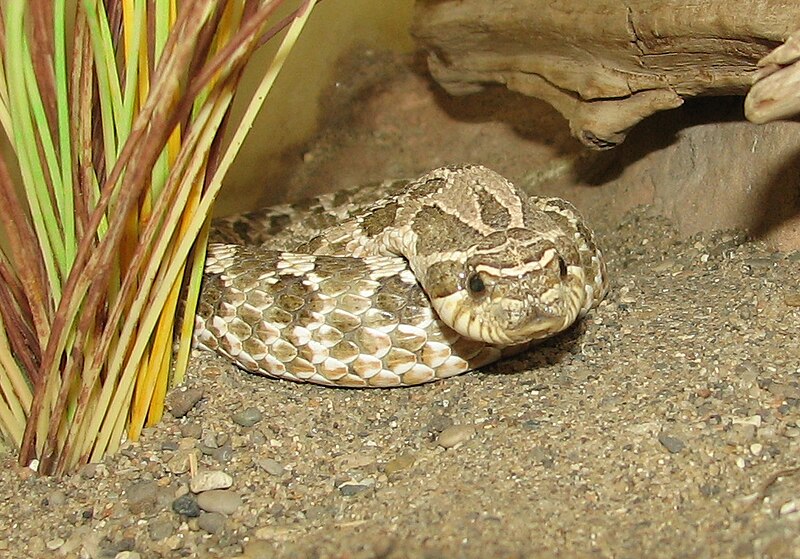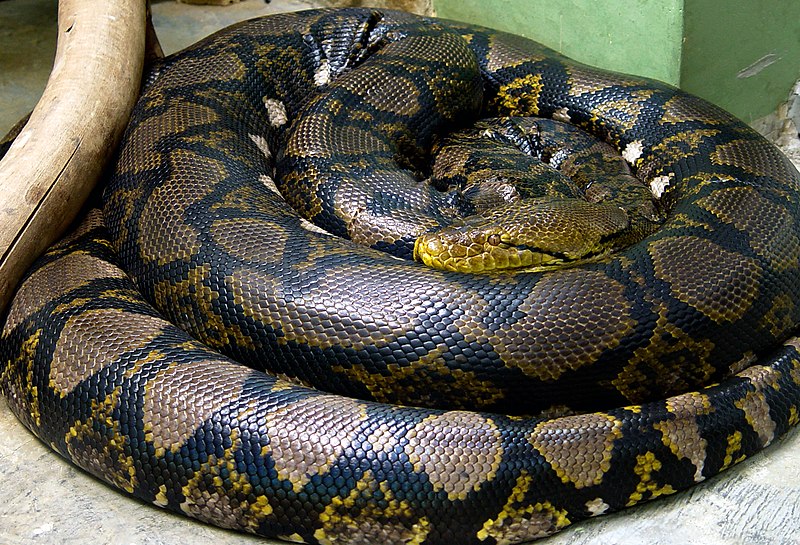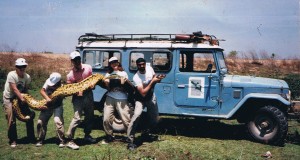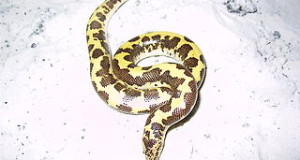 Many interesting reptile field research reports are published in professional journals that are not available online to non-subscribers. Fortunately, I’ve long had access to many of my favorites, including Copeia, Herpetologica, and Herpetological Review. From time to time I like to provide summaries of interesting reports that I have read and enjoyed. Today’s article covers some very unique snake feeding observations drawn from recent publications and my own experiences in the field and among zoo animals. Please be sure to post your own observations below, thanks.
Many interesting reptile field research reports are published in professional journals that are not available online to non-subscribers. Fortunately, I’ve long had access to many of my favorites, including Copeia, Herpetologica, and Herpetological Review. From time to time I like to provide summaries of interesting reports that I have read and enjoyed. Today’s article covers some very unique snake feeding observations drawn from recent publications and my own experiences in the field and among zoo animals. Please be sure to post your own observations below, thanks.
When Prey Exceeds Predator’s Mass
The largest snake meal that I’ve personally witnessed was a 60 pound White-Tailed Deer taken by a 17 foot-long, 215 pound Green Anaconda, Eunectes murinus, in Venezuela. A 130 pound Impala consumed by an African Rock Python, Python sebae, is the largest fairly reliable meal I’ve been able to document (please see article linked below).
But in terms of the ratio of prey size to snake size, a Red Duiker (small antelope) eaten by a Gaboon Viper, Bitis gabonica, beats most accounts hands down. The antelope outweighed the snake by 4%! In addition to being the largest meal recorded for this species, this is also the first record of an ungulate being taken by a Gaboon Viper in South Africa. I’ve worked with Gaboon Vipers in zoos, and know how well-adapted they are for taking large, infrequent meals, but I was still quite surprised by this observation.
The Oddest Snake Meal – a Stick!
Certain snakes specialize on frog eggs, centipedes, snails, eels, crayfish and other “unusual” foods. On the other hand, I have observed Green Anacondas eating other Anacondas, Spectacled Caiman, birds, fish, Capybara, turtles and deer…one even grabbed a friend of mine in what surely was a feeding and not a defensive response (please see this article).
But the most unusual snake meal I’ve read of in recent years was enjoyed by a Coachwhip Snake in Arizona. Researchers observed the animal biting off a small section of a tree branch. This was dropped, but it soon broke off another and swallowed it! The observers noted that the branch resembled a Fence Lizard, and that Australian Brown Snakes will attack motionless, unscented skink models. So appearance may explain this odd behavior. Also, it’s possible that the scent of an animal could have been on the branch in question, but still…
Specialists Breaking the Rules
Two species long believed to be strict dietary specialists recently revealed that they are open to experimentation. The brilliantly-colored Northern Scarlet Snake, Cemophora coccinea, is rarely kept by hobbyists or zoos because of its preferred diet of lizard and snake eggs. A specimen in South Carolina, however, consumed a young, dead Corn Snake with which it had been temporarily confined.
The Southern Hognosed Snake, Heterodon simus, is widely “known” to be a confirmed amphibian specialist. In North Carolina, however, a field researcher recorded that a large Ox Beetle grub was consumed by a recently collected adult.
 The Western Hognosed Snake, Heterodon nascicus, is known to take a wider range of prey than does its southern and eastern cousins. It favors bird and reptile eggs, but has only been observed hunting on the ground. But a herpetologist working in Arizona recently found an adult consuming the contents of a Lark Sparrow nest located 5 feet above-ground. Considering that this species is fairly common and well-studied, the observer was surprised that this behavior had not previously been reported.
The Western Hognosed Snake, Heterodon nascicus, is known to take a wider range of prey than does its southern and eastern cousins. It favors bird and reptile eggs, but has only been observed hunting on the ground. But a herpetologist working in Arizona recently found an adult consuming the contents of a Lark Sparrow nest located 5 feet above-ground. Considering that this species is fairly common and well-studied, the observer was surprised that this behavior had not previously been reported.
Rarely Documented Prey Items
Although possibly more common than has been recorded, considering the natural history of the species involved, two other notes caught my attention recently. An Eyelash Viper, Bothriechis schlegelii, in Nicaragua was seen to consume a bat, only the third time this has been observed. In Argentina, a Yellow Anaconda, Eunectes notaeus, regurgitated another Yellow Anaconda (and a Cormorant), the first instance of cannibalism reported for this species.
“Picky Eaters”: Muskrats, Eels and other demands
Although Green Anacondas take a wider range of prey than most snakes, many captives are notoriously choosy. One adult under my care at the Bronx Zoo would eat nothing but Muskrats (which I trapped in conjunction with my side job), while another refused lab rats but relished wild-caught Norway Rats (the rats are of the same species).
Yellow-bellied Seasnakes, Pelamis platura, are recorded as taking a very large number of fish species, but several at the Bronx Zoo refused all manner of marine fishes (provided by the NY Aquarium)…only American Eels would do.
People and their Pets

Humans, as far as we know, rarely fall prey to large constrictors. However, an amazing study in the Philippines has documented an unprecedented number of attacks on humans, including 6 fatalities, by Reticulated Pythons. Please see this article for details.
The most audacious feeding incident I’ve uncovered is that of a Siamese cat snatched by a Reticulated Python – from the palace of a former king of Thailand! A friend reported that while he was employed at the Singapore Zoo, a free-ranging Reticulated Python consumed one of his Cape Hunting Dogs. Please see the article linked below for further details.
Further Reading
 That Reptile Blog – Reptile, Amphibian and Exotic Pet Care and Information
That Reptile Blog – Reptile, Amphibian and Exotic Pet Care and Information



Frank considering how big the anaconda can get not to mention their varied diet it drives me crazy that you can buy them off craigs list down here in Fla. Thats all we need down here in the ecosystem with all our canals and woods.
Hi..yes indeed, and they are usually impossible to find; I’ve spent a hour trying to locate a huge female in a small, very shallow watering hole in Venezuela; I knew she was there, and the only escape was over parched, bare ground, but still…
The is anecdotal evidence that anacondas have escaped or been released in Fla over the years, but no real evidence as far as I know. I’m not sure about the legality of sales, as this species has recently been regulated by Fla and perhaps nationally.
Best, Frank
I am repeatedly stunned and find myself in disbelief when I read stories about the size of prey snakes can and will consume. It just seems so hard to believe. It is unreal and rather bizarre!